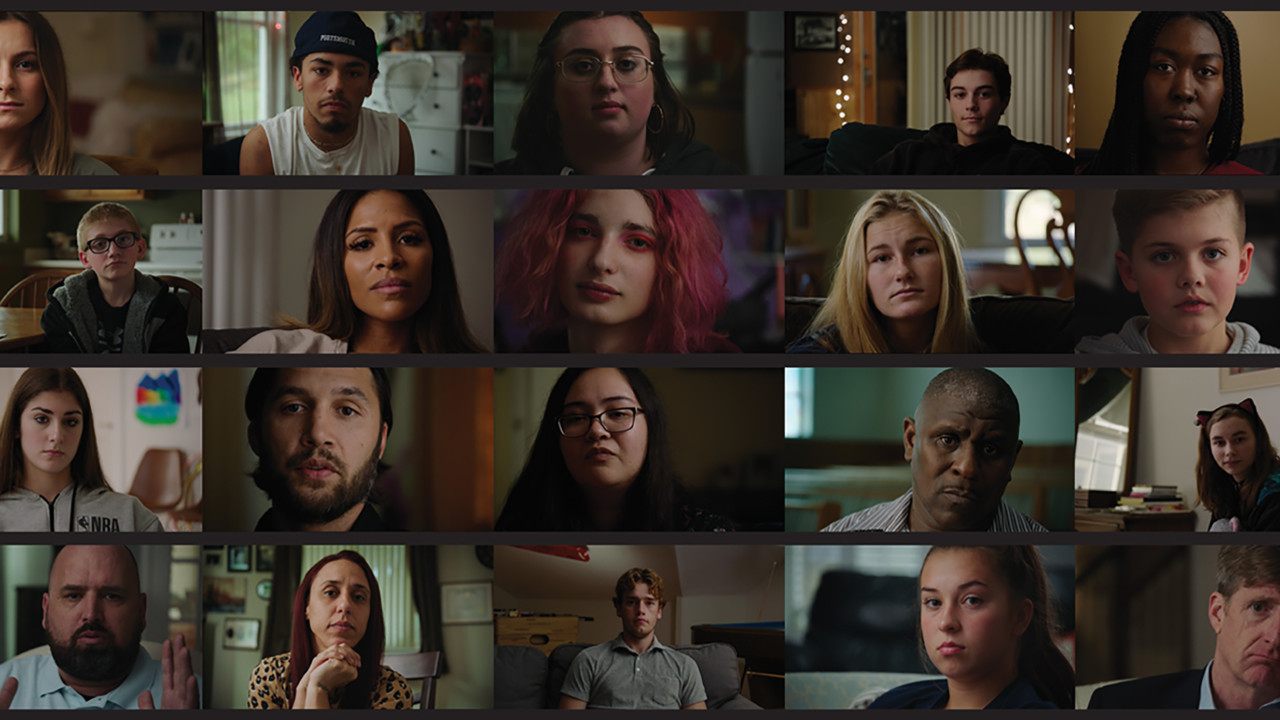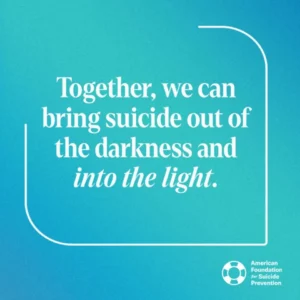
film
Written by Tom Chiodo Contributor Developing documentaries & special projects for public media.
July 18, 2023 / Forbes.com

In the past several years, we have made tremendous progress toward reducing the stigma around mental health. However, many people are still unsure about how to talk about suicide specifically and what to do when someone they know — a loved one, friend, or colleague — is struggling with their mental health.
Meanwhile, the suicide rate in the United States continues to rise. According to the Centers for Disease Control and Prevention (CDC), on average, 132 people die by suicide each day [1]. Approximately 1.70 million Americans attempted suicide in 2021, and 48,183 people died by suicide that year. Suicide is the 2nd leading cause of death among people ages 10 to 14 and 20 to 34, and the leading cause of death among girls ages 10 to 15. The COVID-19 pandemic exacerbated the growing negative trend in our nation’s mental health and will continue to have a lasting effect.
September is National Suicide Prevention Month – an opportunity to raise awareness about suicide and help those who are struggling with their mental health get the lifesaving support and resources they need. This September, and throughout the year, it’s time to shed light on this preventable public health issue and talk away the dark.
Suicide is a topic that hides in the shadows. When we sense that someone is having a hard time, we might worry that saying the wrong thing will make it worse, so we end up not saying anything – even though a few kind words could make a difference in connecting someone to help or supporting someone who experienced a suicide loss.
It’s important to note that talking about suicide does not heal or fix all problems. What leads someone to consider suicide is complex, and although words alone can’t heal everything – we can’t begin to address suicide if we don’t take the first step and start the conversation. It’s also important to know that asking directly about suicide does not lead someone to consider it, rather, it can provide relief and encourage them to open up.
“If someone in your life is struggling with their mental health and things aren’t getting better, ask directly about suicide and connect them with lifesaving resources,” says Robert Gebbia, Chief Executive Officer at the American Foundation for Suicide Prevention (AFSP). Even though talking about suicide and mental health struggles can feel intimidating and difficult – especially if we experience societal or familial shame around these topics — trusting your gut and asking someone if they’re thinking about suicide will not “put the idea in their head” or push them to take their life. In fact, research indicates that someone who is struggling will often be relieved that someone has noticed their pain and cares enough to reach out.
This year, AFSP launched a year-long campaign – Talk Away The Dark — to shift the larger cultural narrative around suicide, empower people to ask directly about suicide if they are worried about someone, and show the powerful role these conversations play in bringing about hope and saving lives.
Similar to learning about the warning signs and risk factors of suicide, you don’t need special training to have an open, authentic conversation about mental health – and often, just talking about it can be the first important step toward understanding where someone is with their mental health and helping them get support or treatment if needed. Here are some pointers you can use for having a #RealConvo with the people in your life.
When speaking to a loved one about their mental health, you may begin with one of the following thoughts or questions:
If someone shares that they are having a hard time, let them know that you are taking them seriously and you want to hear more about how they are feeling by practicing active listening.
Once you begin the conversation about mental health, your friend or family member may feel comfortable enough to reveal that they’re having thoughts of suicide. In these situations, it is important to remain calm. Just because someone is having thoughts of suicide, doesn’t mean they’re in immediate danger. Take the time to calmly listen to what they have to say, and ask some follow-up questions such as:
If someone tries to open up, but you find that your reaction to the difficult conversation is making it hard to listen, allow yourself time to experience your emotions. Make sure the person is not in immediate danger and knows that help is available. You can always reopen the conversation when you’ve had time to compose yourself. Know that it’s never too late to start a conversation if you’re worried about someone.
Furthermore, if your loved one does not reveal to you that they may be having suicidal thoughts, but you believe that they are, trust your gut and ask them directly. You can ask questions like:
Reassure your loved one that help is available, and that these feelings are a signal that it’s time to talk to a mental health professional. Help them connect to a professional by:
In addition, you can direct them to mental health resources, such as:
Suicide prevention is important every day of the year. National Suicide Prevention Month gives us an opportunity to shine an encouraging light on this topic, and send a clear, hopeful message that help is available, and suicide can be prevented.
Follow me on LinkedIn.

Tom Chiodo Executive producer Special Projects, National Productions at WETA, flagship PBS station in Washington D.C., developing primetime documentary films and original digital content, accompanied by national impact and engagement campaigns, for 330+ PBS stations. Recent projects include Ken Burns presents Hiding in Plain Sight: Youth Mental Illness (2022); Emmy-nominated documentary The Gene: An Intimate History (2020). More than thirty years experience in media, communications, television, and entertainment industry. Senior positions at Entertainment Industry Foundation, Rubenstein Associates, U.S. Department of Health & Human Services, and Massachusetts Department of Pubic Health. Co-author “Home Care for Respirator Dependent Children” New England Journal of Medicine. Contributing writer Forbes.com. 2023 judge for National Academy of Television Arts & Sciences News & Documentary Emmy Awards.
The “Hiding in Plain Sight” Blog supports the 2022 documentary series Hiding in Plain Sight: Youth Mental Illness (Now streaming on the PBS App), and the upcoming 2025 series, Hiding in Plain Sight: Adult Mental Illness, produced and directed by Ewers Brothers Productions, executive produced by Ken Burns, and presented by WETA, the PBS flagship station in our nation’s capital.
You are not alone. If you or someone you know is in crisis, whether they are considering suicide or not, please call 988 or the toll-free National Suicide Lifeline at 800-273-TALK (8255) to speak with a trained crisis counselor. If you don’t want to talk on the phone, you can also text. Crisis Text Line offers free mental health support. Text “10-18” or “SCRUBS” to 741741 for help. The call and text lines are open 24 hours a day.
WellBeings.org is a health and wellness resource, not a crisis or suicide response website. If you are in crisis, or experiencing thoughts of suicide, please call or text the 988 Suicide & Crisis Lifeline at 988 or the LGBT National Hotline at (888) 843-4564. The service is free and available 24 hours a day, seven days a week.